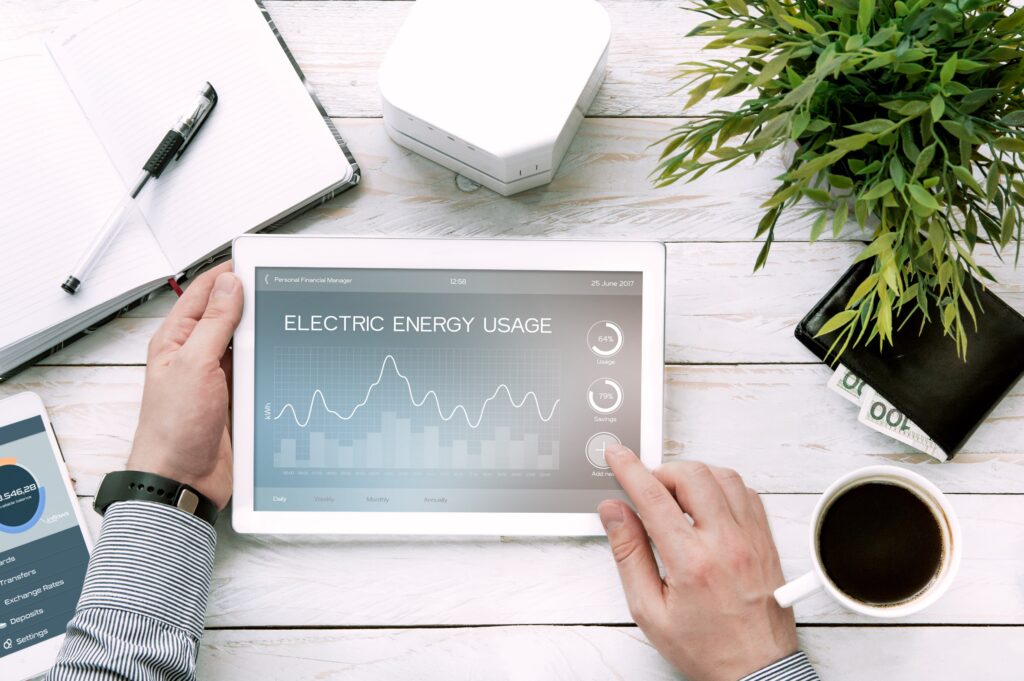Top Ten Tips for Fixing Your Business Electricity Contract
Business electricity contracts can be difficult to parse, with every business having different needs and priorities. However, all businesses aim for a few key things. They want to lower costs, reduce risks, and ensure the contract meets their needs and goals.
Here are the top ten tips for any business looking to fix their business electricity contract:
1. Review Your Current Contract Thoroughly
Begin by analysing your current contract. Check the electricity rates, terms, and renewal date. Look for any clauses related to price increases, hidden fees, and the duration of the contract.
If your contract is up for renewal, it’s a good time to check if your current deal is still competitive.
2. Understand Your Energy Usage
Track your business’s energy consumption for at least 12 months to understand your usage patterns. Identifying peak demand times and seasonal fluctuations will help you choose the best pricing plan.
Consider whether your business could benefit from energy efficiency measures. These could include energy-efficient lighting or equipment to reduce overall consumption.
3. Compare Rates from Multiple Providers
Don’t settle for the first offer. Use energy comparison websites to compare rates and plans from different suppliers. Many suppliers may offer competitive business energy rates, so it’s worth shopping around.
Compare both fixed and variable rate contracts to determine which is best for your business. Fixed rates offer price stability, while variable rates can fluctuate with market conditions.
4. Consider Time-of-Use (TOU) Tariffs
If your business operates with variable energy demand, time-of-use (TOU) tariffs could be beneficial. These tariffs charge different rates depending on the time of day, with lower rates during off-peak hours.
Adjusting your operations to use energy during cheaper periods (like evenings or weekends) could lead to significant savings.
5. Negotiate Terms and Discounts
Don’t be afraid to negotiate with your business energy supplier. Many businesses, especially larger ones or those with high energy consumption, can secure better rates by negotiating.
Ask about volume discounts or loyalty discounts. Some suppliers offer better deals for long-term contracts or if you are switching from a competitor.
6. Evaluate the Length of the Business Energy Contract
A long-term fixed-rate contract might give you stability. However, it could also mean you miss out on potential savings if market energy prices drop.
Businesses with changing growth or energy needs can benefit from shorter contracts. Contracts that last one or two years offer more flexibility.
Always weigh the pros and cons of locking in a price you pay versus remaining flexible.
7. Consider Green Energy Options
Switching to a green energy plan can be a good choice if your business wants to boost its sustainability. Many energy suppliers offer renewable energy contracts.
In some regions, you may qualify for tax incentives, grants, or green certifications by opting for renewable energy, which could improve your brand image as well.
8. Monitor Your Energy Usage Regularly
Many suppliers offer tools or apps to help businesses monitor real-time energy consumption. By regularly reviewing your usage, you can identify inefficiencies and adjust your operations accordingly.
Consider investing in energy management software that can track gas and electricity consumption patterns and offer insights into when and how energy is being consumed.

9. Review Early Termination Fees and Exit Clauses
Before you commit to a new contract, ensure you understand any early termination fees or exit clauses. Some contracts may include hefty penalties if you decide to switch providers or upgrade your contract before it expires.
If you have a long-term contract but can get a better deal, check if paying the early exit fee will save you money.
10. Consider a Hybrid or Multi-Supplier Approach
For large businesses with different energy needs in various locations, it can help to use multiple suppliers. You might also consider a hybrid contract.
This approach allows you to take advantage of different pricing structures, such as fixed-rate contracts for predictable energy usage and variable-rate contracts for more flexible parts of your business.
By using these strategies, you can improve your electricity contract. This will help lower energy costs and boost sustainability. It will also make sure your energy plan fits your specific needs.
Apertus Group can help businesses evaluate their energy needs and find the right deal for their needs. You can learn more by calling us on 01604 212 828 or emailing info@apertusgroup.co.uk.



